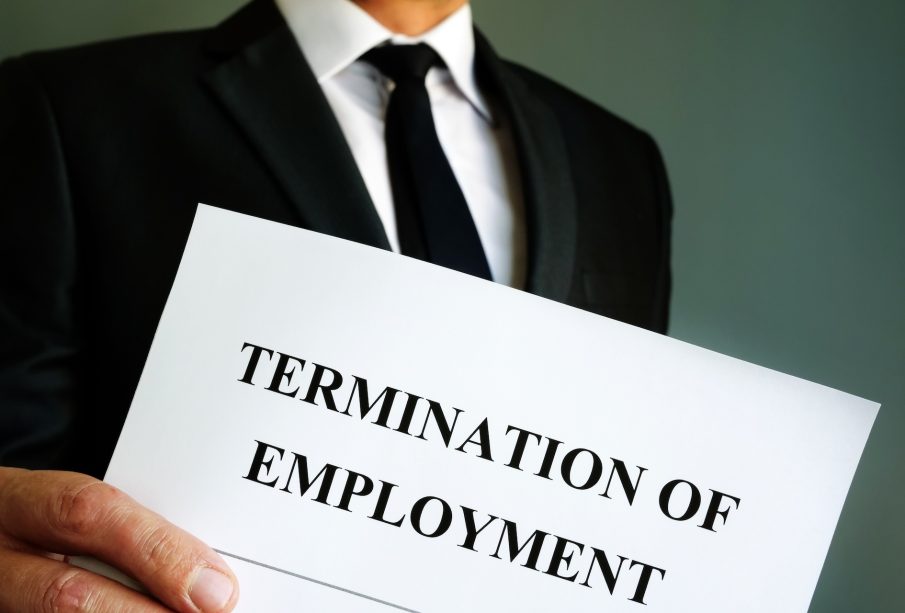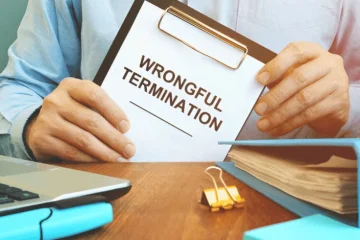What Evidence You Need to Prove Wrongful Termination in Dallas

Man is holding Termination of employment papers.
If you believe you were wrongfully terminated from your job in Dallas, Texas, building a strong case is essential to protecting your rights and seeking justice. However, wrongful termination claims can be complex and require solid evidence to prove that your firing was illegal or unjust.
Understanding what types of evidence are crucial can make a big difference in the outcome of your case. In this post, we’ll break down the key kinds of evidence you need to gather to support a wrongful termination claim in Dallas, and how a skilled attorney can help you put your case together effectively.
Why Is Evidence Important in Wrongful Termination Cases?
Texas is an “at-will” employment state, meaning that in most situations, an employer can terminate an employee for any reason or no reason at all. This means that if you want to prove your termination was wrongful, you must show that your employer violated a law or contract.
The burden of proof is on you—the employee—to provide evidence that your firing was due to discrimination, retaliation, breach of contract, or another unlawful reason. Without strong evidence, it’s difficult to succeed in a claim.
Key Types of Evidence to Collect
1. Employment Records
Your employment records provide a baseline for your case. These include:
- Employment contract or offer letter: Any written agreements outlining terms of your employment, job duties, and termination policies.
- Employee handbook or company policies: Documents detailing company rules, disciplinary procedures, and employee rights.
- Performance reviews and evaluations: Records showing your job performance over time. Positive reviews can counter claims that you were fired for poor performance.
- Attendance records: These can be relevant if your employer cites attendance issues as a reason for termination.
2. Termination Documentation
You should keep any documentation related to your termination:
- Termination letter or notice: Written explanation of why you were fired, if provided.
- Emails or messages about your firing: Any communications from supervisors or HR regarding your termination.
- Severance agreements or releases: Documents you may be asked to sign after termination—review carefully before signing.
3. Communication Records
Emails, texts, memos, and voicemails can be powerful evidence, especially if they reveal:
- Discriminatory or retaliatory statements
- Changes in your work assignments or treatment after protected activities
- False or inconsistent reasons given for your firing
Keep copies of all relevant communications with supervisors, HR, or coworkers.
4. Witness Statements
Coworkers or supervisors who witnessed discriminatory behavior, retaliation, or unfair treatment can provide important testimony. Statements or affidavits from witnesses who support your version of events strengthen your case.
5. Documentation of Protected Activity
If you were fired after reporting discrimination, harassment, unsafe working conditions, or wage violations, document:
- The date and method of your complaint (written, verbal, email)
- Any responses or investigations conducted by your employer
- Evidence that shows a connection between your complaint and your termination
How to Organize and Preserve Evidence
- Make digital and physical copies of all documents.
- Store them securely to prevent loss or tampering.
- Keep a detailed timeline of events, including dates, locations, and people involved.
- Avoid deleting or altering any files that may be relevant.
How a Dallas Wrongful Termination Lawyer Can Help
Collecting and presenting the right evidence is crucial to winning a wrongful termination case. A knowledgeable Dallas wrongful termination attorney will:
- Identify what evidence is most relevant to your situation
- Help gather additional proof through discovery and subpoenas
- Advise you on what documents or testimony could strengthen your claim
- Present your case effectively to employers, mediators, or courts
Final Thoughts
Proving wrongful termination in Dallas requires more than just your word—it depends on solid, well-organized evidence that demonstrates your firing was unlawful. If you suspect you were wrongfully terminated, start gathering relevant documents and communications immediately.
Consulting an experienced wrongful termination lawyer can help you understand what evidence you need and how to build a compelling case. Don’t wait—protect your rights and take action today. We recommend wrongful termination lawyers Dallas.










